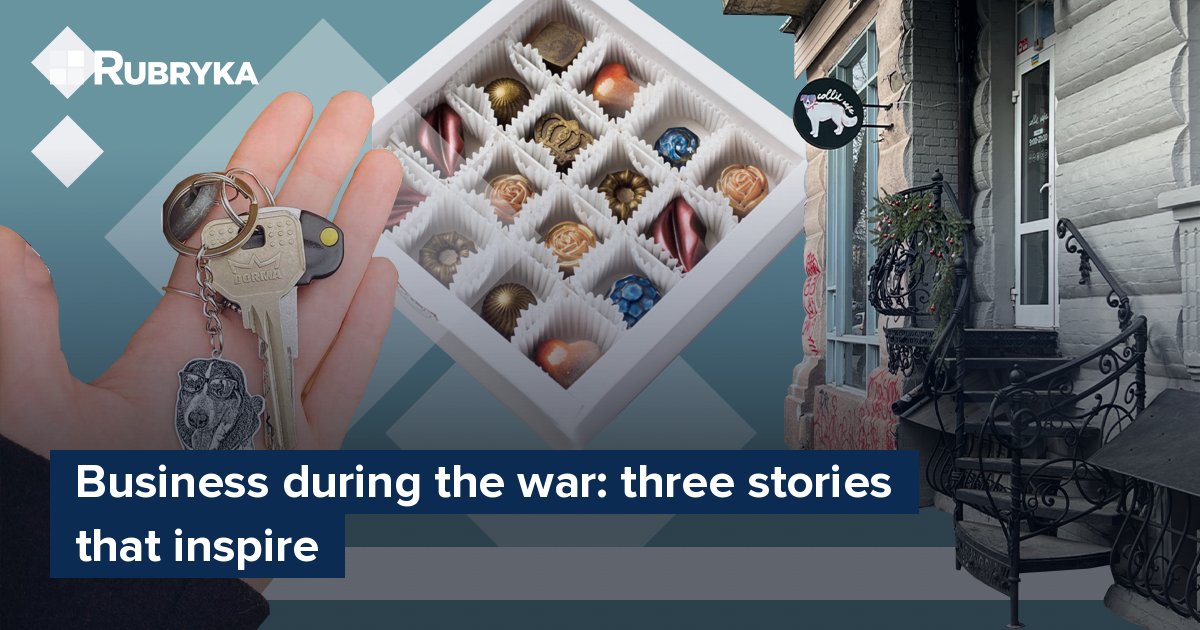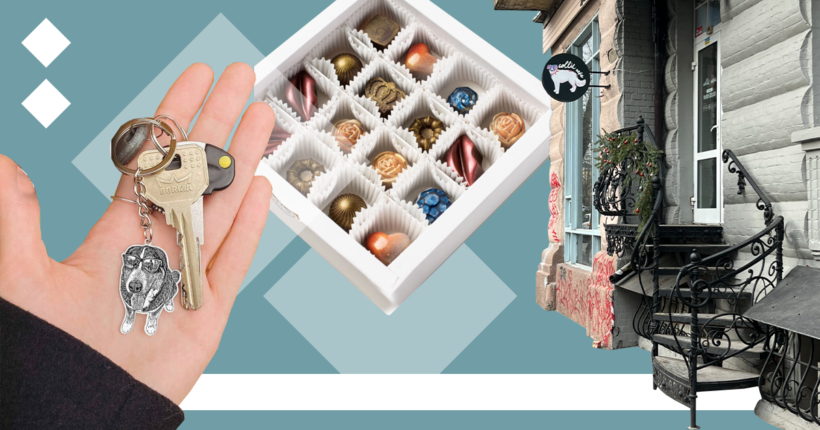
Despite the full-scale war in Ukraine, new enterprises continue to open. According to official data, as of August 2022, new business registration was 114% of August 2020 and 71% of 2021, indicating that adaptation to full-scale war took place faster than to the COVID-19 pandemic. Nevertheless, the war dictates new challenges and forces Ukrainians to find solutions to new problems. Rubryka spoke to Ukrainian entrepreneurs who opened their businesses during the war and asked about their experience.
What is the problem?
Ukrainian enterprises feel the consequences of the war every day.
From February 24, 2022, to March 16, 2023, more than 22 thousand air alarms sounded in Ukraine. The average duration of an alarm is 54 minutes. According to statistics, air alarms most often cover Ukraine or certain regions during the day from 12 p.m. to 6 p.m. — active working hours, especially for small businesses. In addition, from October to February, Ukrainians lived in conditions of widespread power outages. During the biggest blackout at the end of November, there was no light in some places for more than three days.
Moreover, constant threats of missile attacks or drone strikes carry risks not only for businesses but also for every Ukrainian, not to mention the physical destruction of the premises and the threat to employees' lives. And this is only a short list of the main problems.
Undoubtedly, all this harms both service businesses (restaurants, cafes, gyms) and production.
So the question arises: is it even worth starting a business during the war? And if so, how to do it?
What is the solution?
Rubryka spoke to three entrepreneurs who opened a business during the full-scale war. Read more about their stories, advice, and main lessons for all those who want to develop their business despite the war.
How does it work?
Make your dream come true and open a cafe
The "Collie" cafe became the first business venture of Eva Tsoi from Kyiv. Previously, the entrepreneur was already familiar with the restaurant business — her parents once had a restaurant, but life circumstances forced them to sell it. Since then, Eva has dreamed of her own place.
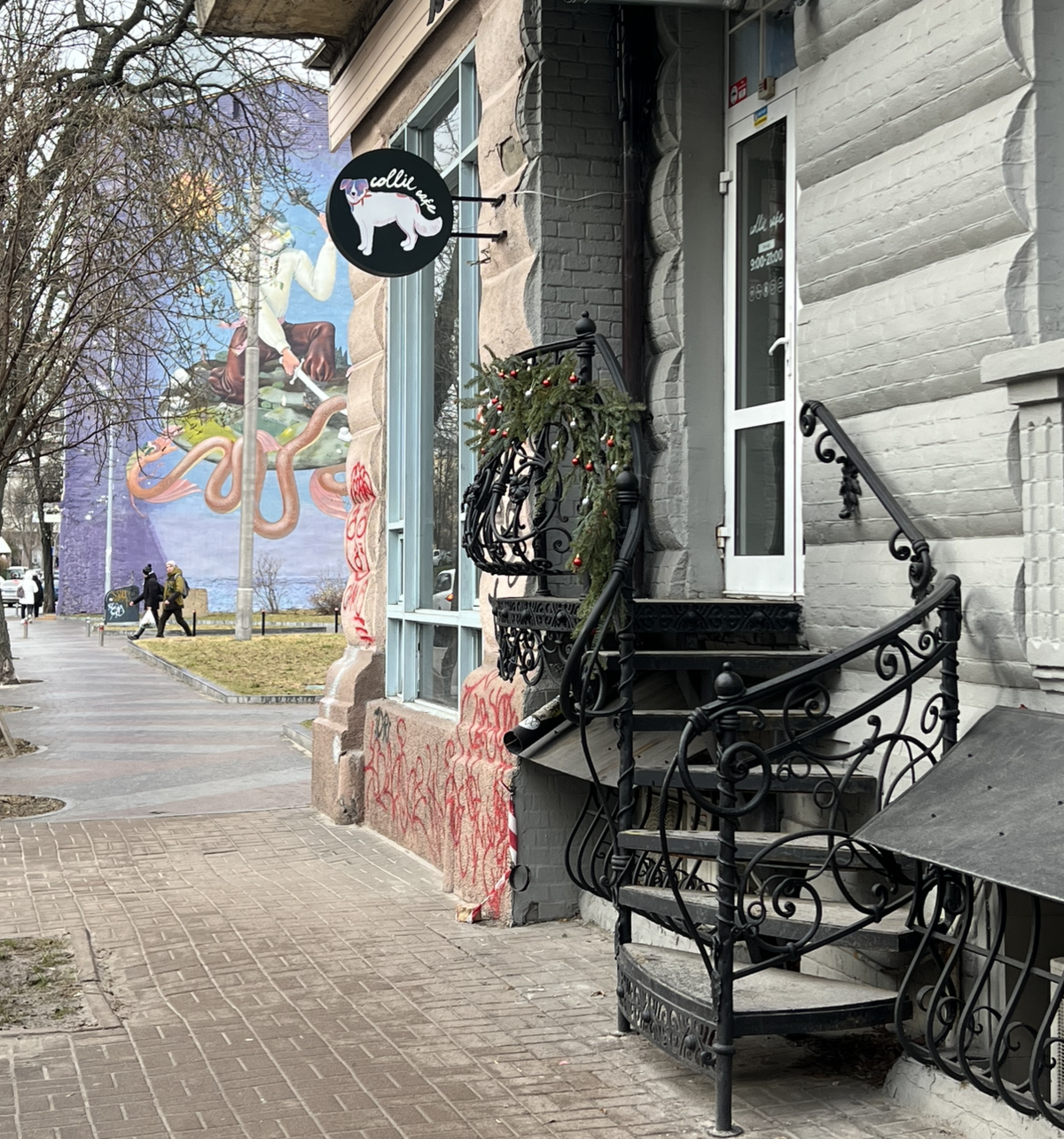
Photo: Eva Tsoi's personal archive
Preparations for opening a pastry shop began in September 2022. Despite the war, Eva decided there would be no better time to realize her dream. She used to work in the service industry, and her previous work experience came in handy — but now, the young entrepreneur managed all the processes. She registered as an individual entrepreneur and concluded the lease agreement. And then painstaking daily work began.
The pastry shop serves coffee, breakfast, and desserts. Tsoi herself works in the kitchen along with two baristas and a cleaning lady. According to the entrepreneur, this is enough for the establishment to work consistently.
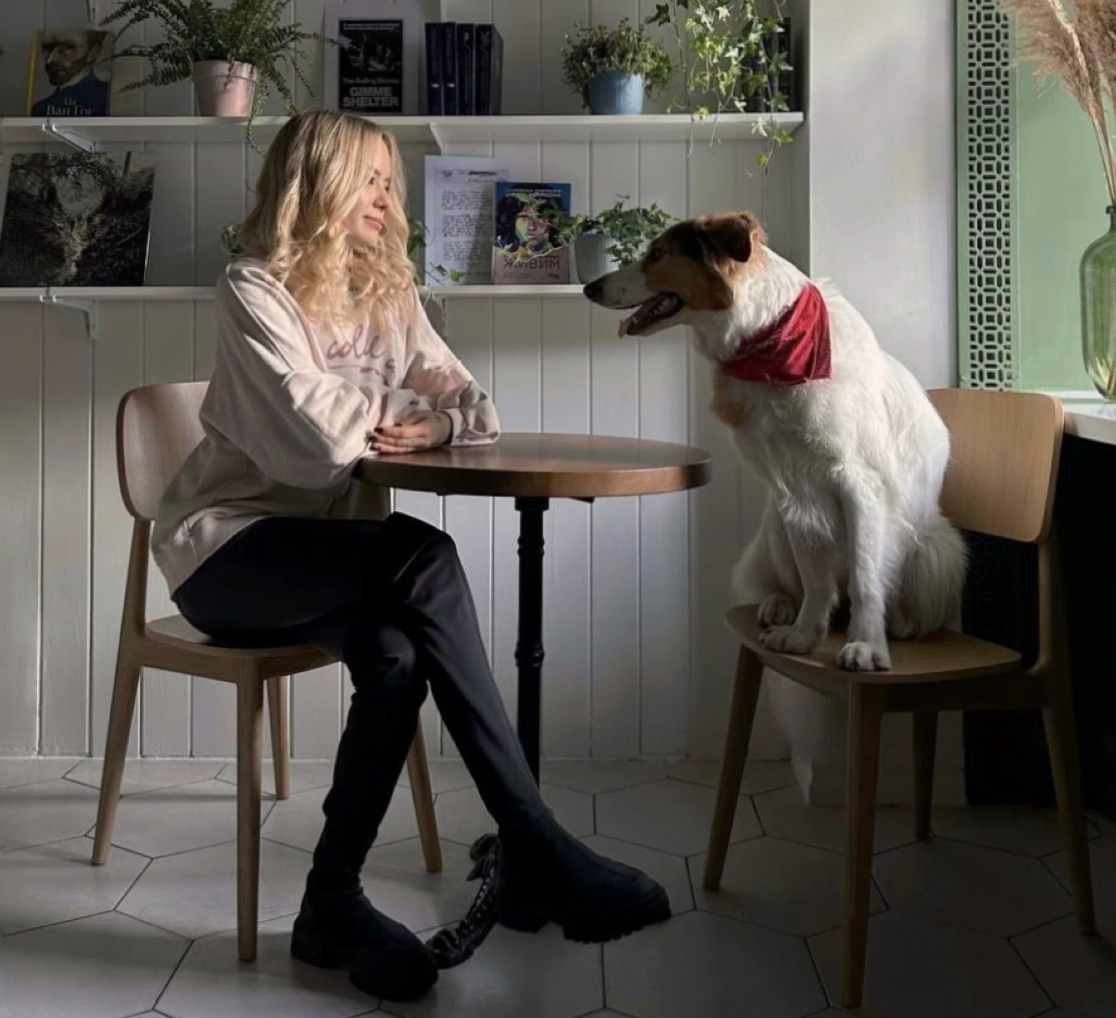
The cafe was named after Kroshka, a border collie. Photo: Eva Tsoi's personal archive
Tsoi says opening a cafe is a big challenge, especially during the war. And yet, despite the fear, there were no doubts. The preparation for the opening lasted three months — during this time, the team made repairs, prepared the premises, and purchased equipment. Repair work and the cafe launch in December coincided with the beginning of russia's mass shelling and, accordingly, with the blackouts. But here, the owner was a little lucky:
"Our building is close to the Japanese Embassy, probably considered critical infrastructure. We must be wired together because the electricity wasn't turned off. But when the air alarm starts — they turn off the electricity and don't turn it on until it ends. We do not need generators, but it is still very inconvenient," Tsoi shares.
The place was opened solely on the founder's savings. And although in winter, the cafe had to go through difficult times immediately after opening, now Tsoi is looking forward to a warm season when there will be more people on the streets, which may increase the flow of customers. Until now, visitors mostly visited after learning about the place on Instagram or through acquaintances. Tsoi says that this was enough to get the first customers.
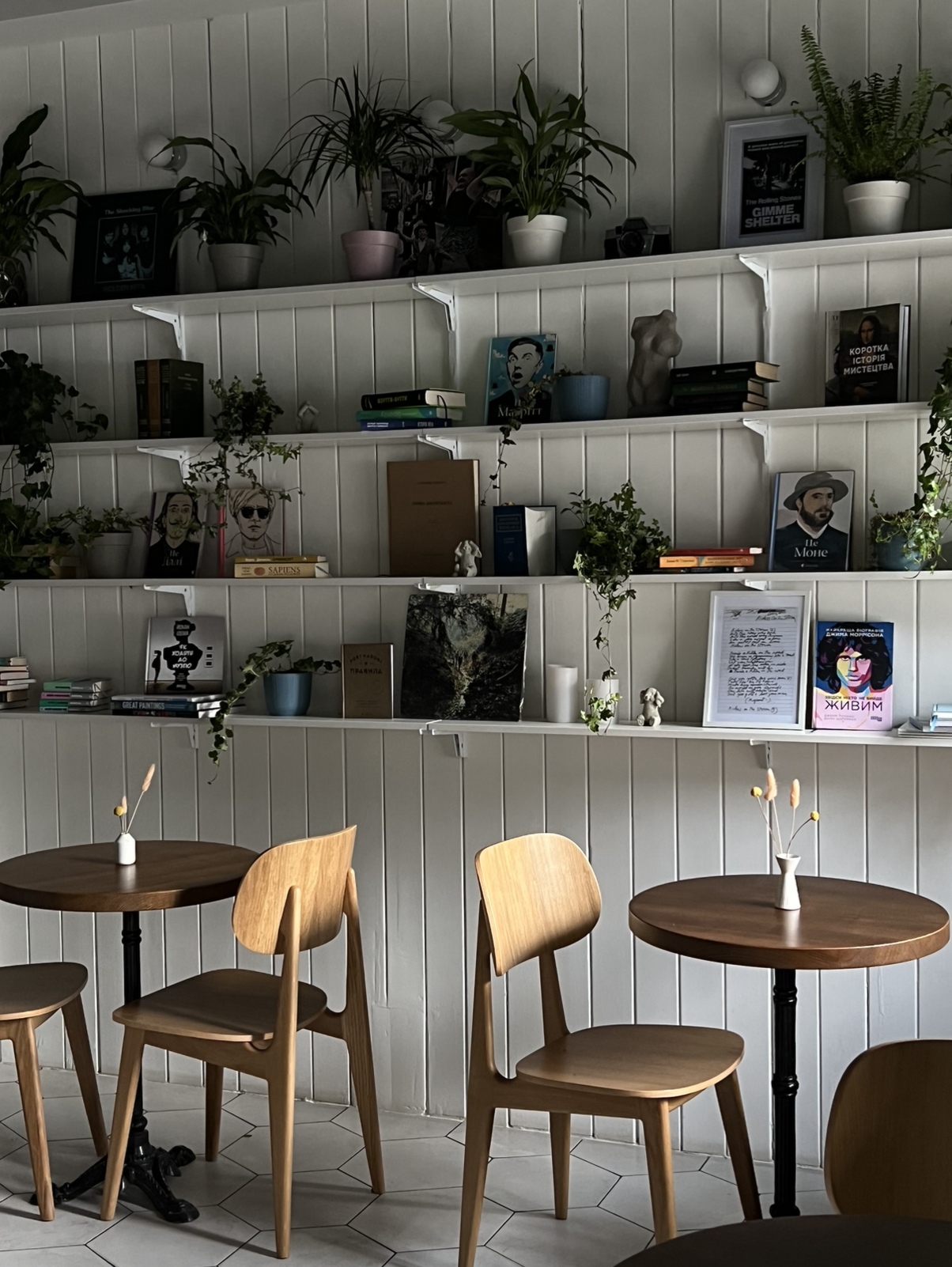
"Collie" pastry shop. Photo: Eva Tsoi's personal archive
"Of course, it is difficult to work during the war. There were moments when explosions rang out in the streets. And we had visitors with a four-year-old child. She asked: 'Mom, are these explosions?.' And mother answered: 'No, it's thunder.' Then we took out the gingerbread and colored it with the child, invited her to the kitchen, and gave her a tour. Now you feel that you are responsible not only for yourself but for everyone," Tsoi remembers.
Despite the war, she does not regret finally fulfilling her dream and opening a cafe. She says: "You don't need to be afraid or doubt something; just do what you need to do. Maybe not the first time, but everything will work out."
How does it work?
Create keychains for those who miss their pets
Maksym Zhadan and Hryhoriy Marusich were also not afraid to open their business during the war: the entrepreneurs used their savings to start the production of keychains with engraved photos of pets.
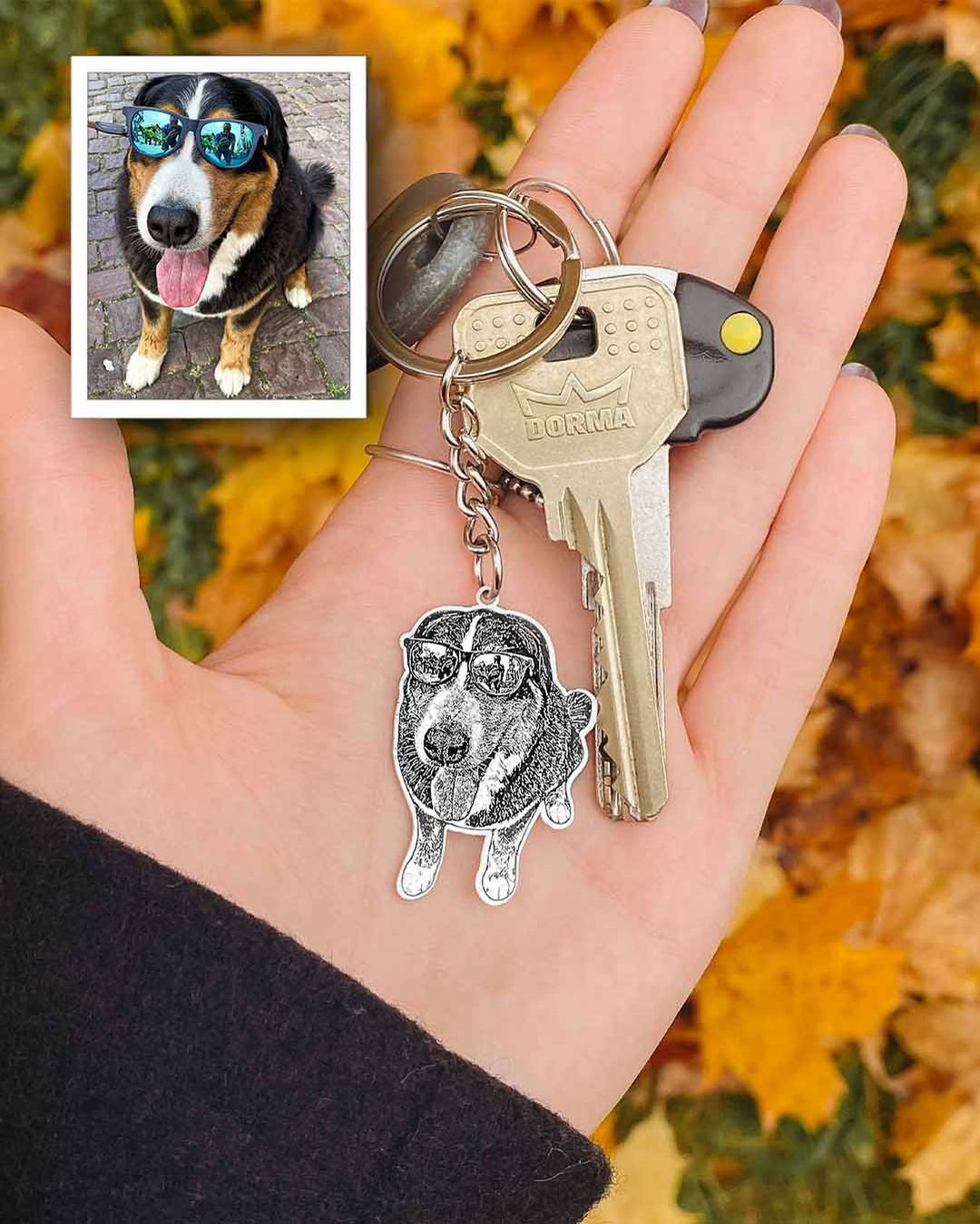
Photo from "Bestmemory" Instagram
Marusich says that the most important thing for entrepreneurs not only now, during the war, but also in peacetime is to find their niche:
"You need to find something that hasn't been done yet. Look for a problem in society, and offer a solution."
In 2022, due to russia's full-scale invasion of Ukraine, millions of Ukrainians had to leave their homes. Some lost their dearest ones, and some were separated from them. For many, pets are also full-fledged family members, and separation from them, even temporary, is perceived acutely and hurts the owners. The entrepreneurs felt this and decided to help people who lost their animals or could not be near them. A small keychain with the image of a pet became the solution that, according to the manufacturers, was supposed to comfort the owners somewhat.
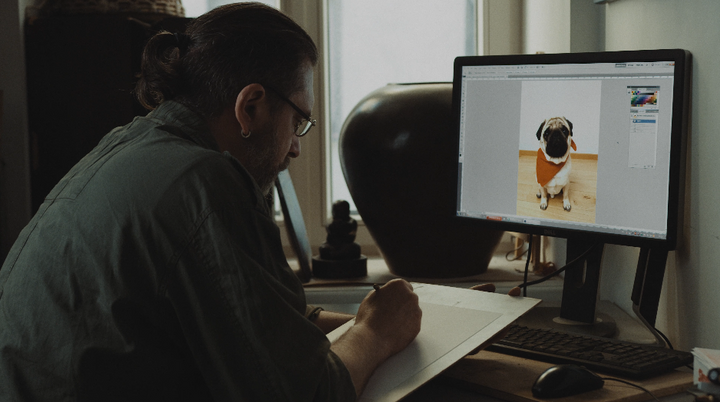
Businessman creating a design. Photo: "Bestmemory"
Very few machines in Ukraine can make such precise engraving on a small piece of metal. Therefore, the entrepreneurs went to Dnipro, where manufacturers already had the necessary equipment. New business partners needed less than $100 to implement the first batch, including engraving the first copies and testing advertising on social networks.
But at the beginning of production, they faced other problems:
"In Dnipro, there was a power plant 300 meters from the factory. And imagine — advertising is working, and there are many orders. And suddenly, a missile hits the station. There is no electricity, nothing is working, and no orders can be done," says Marusich.
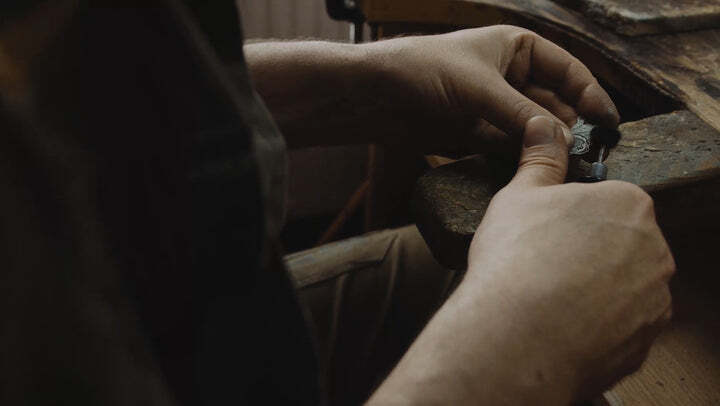
Production process. Photo: "Bestmemory"
During the blackout, the production stopped, but the generator came to the rescue. However, there were still delays and, accordingly, dissatisfied customers:
"We tried to solve it somehow — either we did free delivery or returned the money. This project is not for making money. We wanted to support Ukrainians and add joy to their lives. We have good reviews. People write, look at the keychain, and it becomes easier for them," says Marusich.
At first, the businessman worked only together — one processed orders, and the other called customers. They independently made the design and transferred it to production. After that, the created picture was polished, and key rings were put on. Zhadan admits that back then, they worked for months without days off. Now, there is a whole team: departments of shipments, polishing, work with customers, technologists, a designer, and assistants.
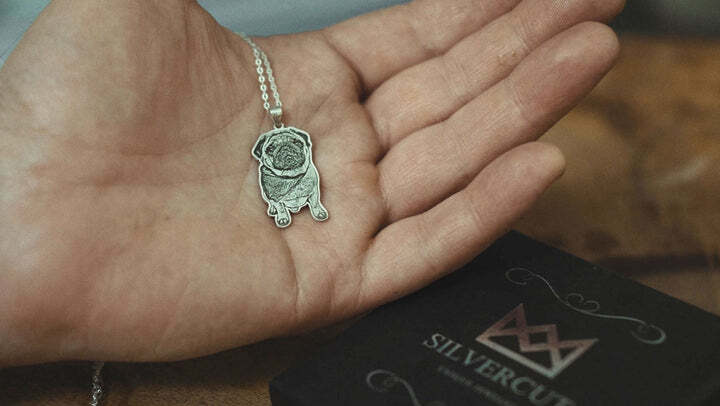
Photo: "Bestmemory"
However, not everything was so easy for a small business: due to constant power outages and shelling, when the work still did not stop, and the team worked with flashlights, batteries, and light bulbs, just to finish the job nicely and qualitatively — the founders decided to move the work from Dnipro to Kyiv. They have already bought their own machine with the money earned and can make keychains themselves.
The entrepreneurs say one shouldn't be afraid to start a business during the war: "The best time you could have started your own business was a year ago. And the second attempt is today."
They are ready to give free advice and answer the questions of novice entrepreneurs. To do this, you can write to the "Bestmemory" page on Instagram: "We were just starting out. We understand how difficult it is. And that there will be many questions. Therefore, people can write to us, and we will help if we can," says Zhadan.
How does it work?
Restore lost business in Mariupol thanks to a grant
Larysa Kapranova, until recently, had a quiet life in Mariupol, work, housing, and her own business for producing craft candies, "Chocolate Art Studio KL." But all this was destroyed by the russian army. The family had to leave the city and, with it — everything acquired in it.
"We built a studio, developed a recipe, and received the Ukrainian State Standard, the document without which no business is possible. But on March 4, everything was destroyed. The premises were fired with guns. According to russians, the Azov market is a military facility. The first weeks after leaving were extremely difficult, but we decided to resume production. Because this is our way to survive," says Kapranova.
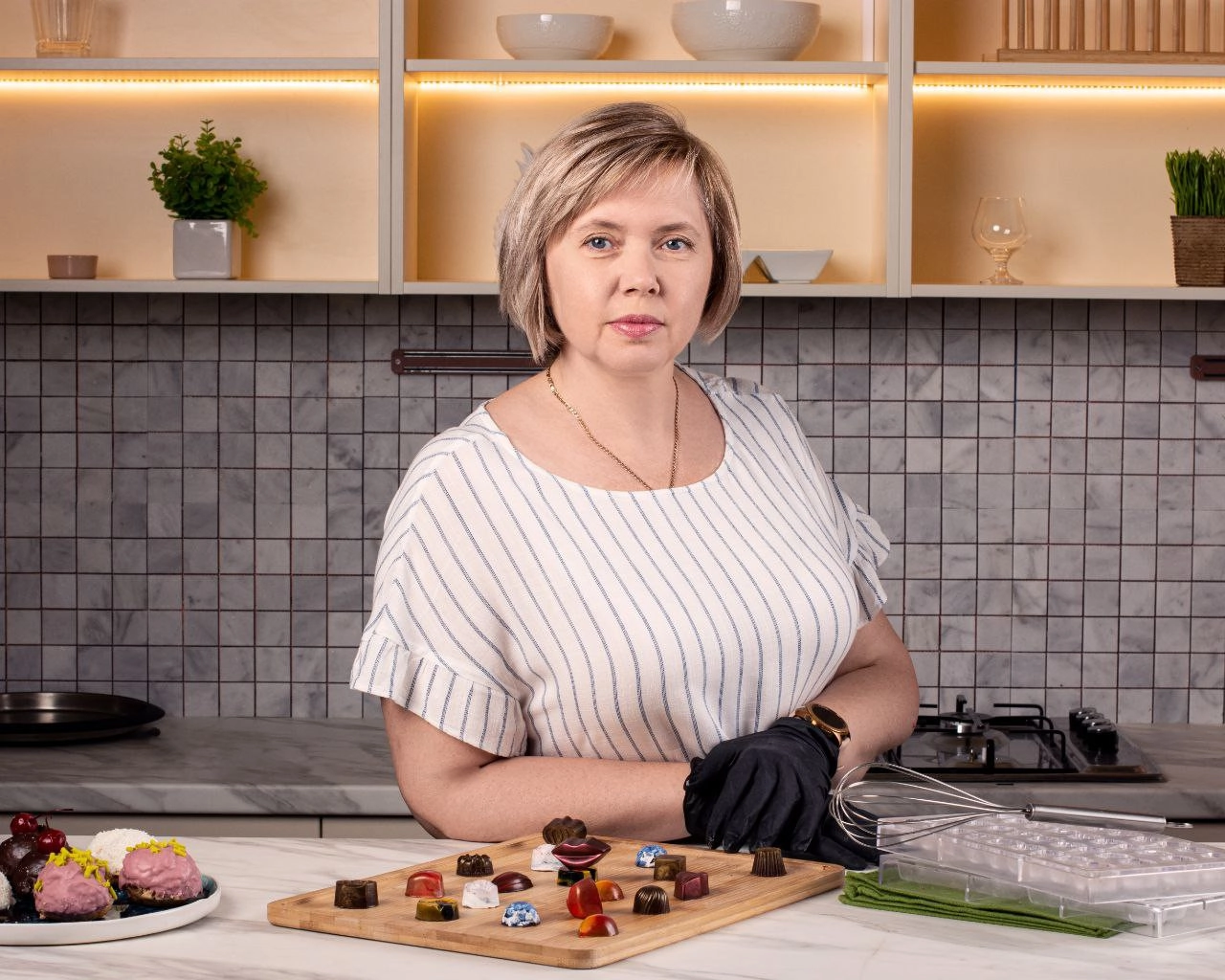
Larysa Kapranova. Photo: eu4business.org.ua
Before the full-scale war, the studio sold 50 to 100 boxes of candy every month. Belgian chocolate products were shipped throughout Ukraine and abroad, as well as to several partner cafes in Mariupol. The missile that hit the premises destroyed everything — refrigerators, freezers, an oven, pastry tools, and molds for sweets. Everything that took so long and so hard to create was destroyed. The family moved to Kyiv.
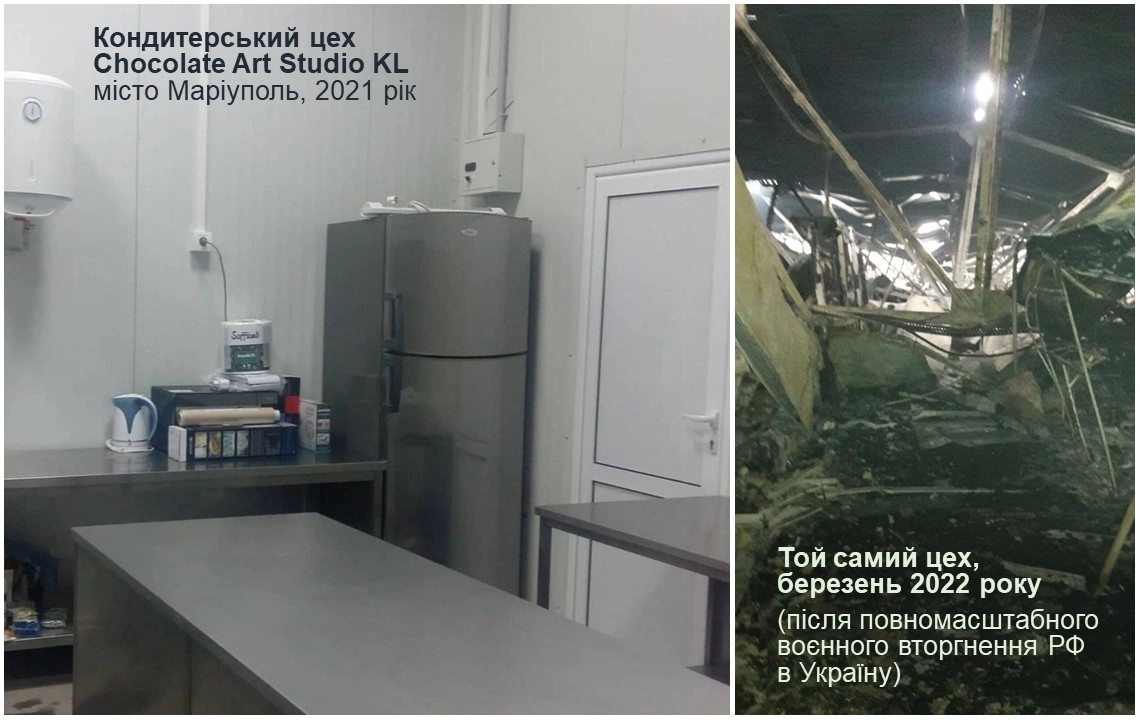
Photo: eu4business.org.ua
In the first months of the evacuation in Kyiv, Kapranova thought about finally saying goodbye to the studio. But the support of her son and husband inspired the entrepreneur to return to business. Despite the low expectations, already in the first hours of work in Kyiv, Kapranova began to receive orders. Friends, colleagues, or random caring people started to help set up the processes. Someone sent a mixer or someone molds for products. Later, the media talked about the entrepreneur and the studio "Chocolate Art Studio KL." Orders began to arrive so quickly that they had to think about expansion because they needed professional equipment and supplies. The business received a mini-grant for development from a donor organization. After that, the studio almost reached the pre-war number of orders.
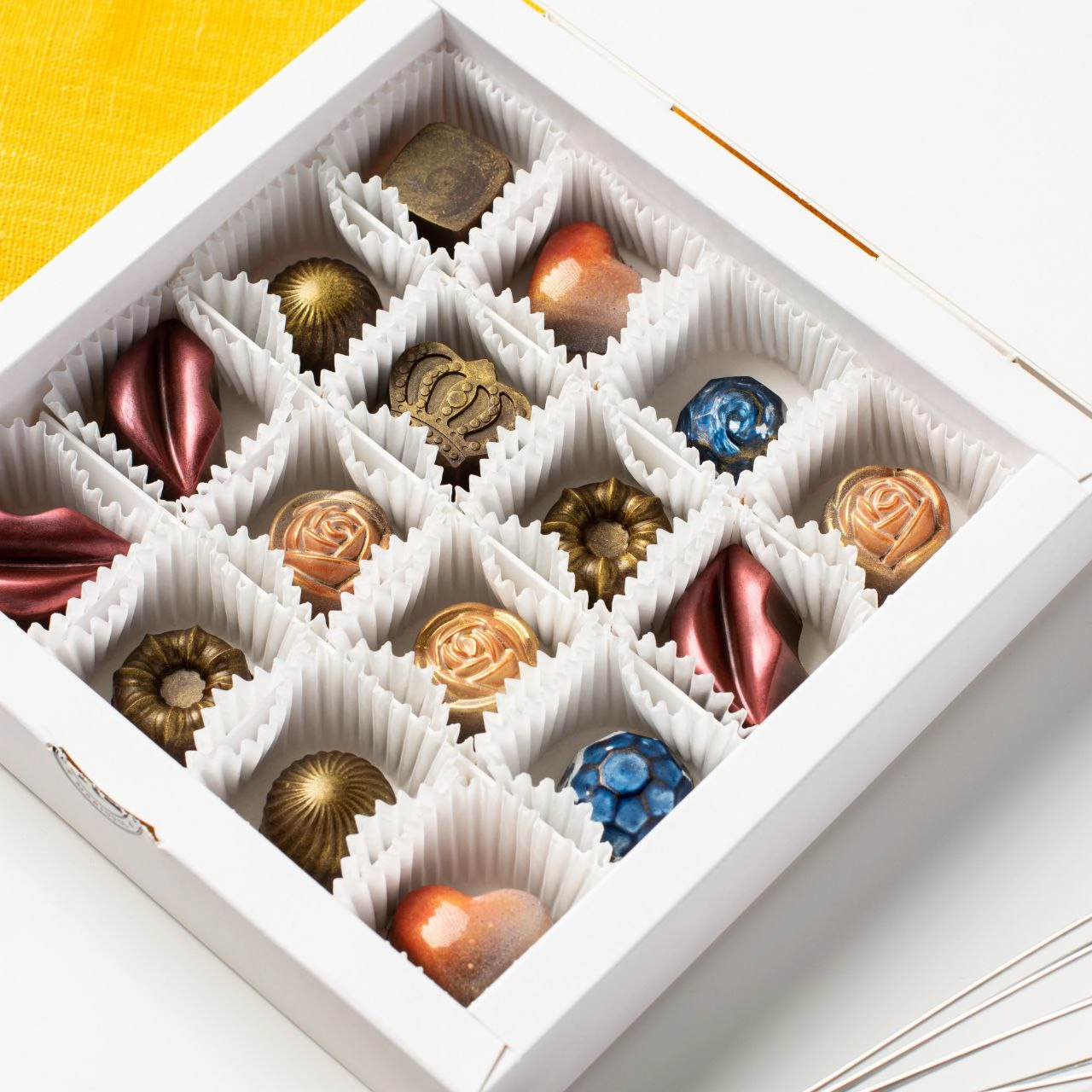
Candies "Chocolate Art Studio KL". Photo: eu4business.org.ua
Now Kapranova continues to develop her business and dreams of one thing — to return home to free Mariupol.
Does it really work?
These wartime business stories are different. But they all show that starting a business is possible even during the enemy fire and air raids. With the help of grants, own funds, or small investments, it is possible to create an enterprise, even during a war. The main thing is to look for opportunities, work hard and not stop. Ukrainians are good at this.
This material was created by the online media outlet Rubryka within the framework of the "Ukrainian Rapid Response Fund" program, implemented by IREX, with the support of the US State Department. The content is the sole responsibility of the Rubryka online media outlet and does not necessarily reflect the views of IREX or the US State Department.


Microgreens and long-term storage meals: displaced entrepreneur building a business amid war

Starting over, but not from scratch: IDP develops plus-size clothing business

"I need to be useful": How can IDPs find their business in a new place?



